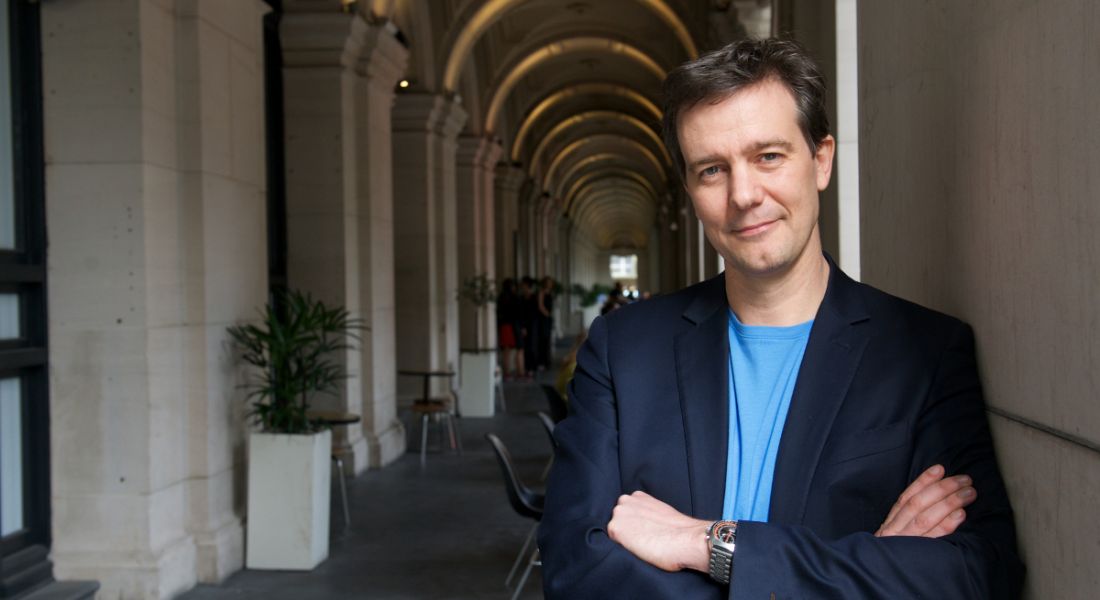Didier Elzinga, CEO of Culture Amp, says culture is intrinsically linked to leadership and trust, and companies and workers either have it or they don’t.
Didier Elzinga, a self-confessed “glorified psychiatrist” who used to do special effects for Hollywood and worked on movies like the Harry Potter saga and Lord of the Rings, is taken aback by my scepticism about culture in companies.
I explain to him that, as a journalist, ‘culture’ is a word bandied about by company CEOs in every interview, at every jobs announcement – you name it. But no one has quantified it.
In a corporate context, to my jaded mind, terms like ‘unique culture’ are usually a ploy to lure young, hip workers into funky corporate offices. ‘Culture’ is a word a sneaky executive might put in a memo to the boss in a bid to get a promotion. Or ‘culture’ is the feel-good PR that bosses want to accompany corporate social responsibility endeavours.
I challenge Elzinga to prove me wrong. He’s up for the challenge.
“Look, I know where you are coming from,” begins Elzinga, who leads Culture Amp, a tech company that analyses culture at companies from Etsy to Slack, Airbnb to Yelp.
“‘Culture’ oftentimes evokes soft and fluffy kumbaya. Like putting a picture of a soft, cuddly cat in a presentation and then a picture of a snow leopard. And you are right. When we think about culture, the tech world tends to show ping pong tables – that is not culture,” he declares.
“Culture, in a nutshell, is what you believe in as an organisation, and what the customer sees and experiences at the end of the day. It is what you stand for, the whole philosophy that your company is built upon, what you are going to succeed at, how you run a company and how you, as a company, treat each other.
“It is what your organisation is motivated to do and how you deliver.”
Very interesting, I reply, but is it still not just a form of corporate narcissim designed to attract generation Y – or millennials, or whatever their latest badge is – into the organisation?
“Okay,” Elzinga replies, mildly amused but still game. “Do you remember the days when Henry Ford grumbled about asking for questions and being disappointed at getting a ‘sea of hands with brains attached’? Culture is the opposite of that. Even today, ‘blue-collar’ work requires cognitive load and constant communication. People don’t just want to be motivated to do things, they want to know why they are doing them and what the brand is built upon.”
In effect, the way Elzinga explains it, culture is as vital as a job description.
“Correct. If you are part of a company with a greater purpose, then you have the autonomy to achieve it. Culture is a methodology for getting things done with the right motivation and the right sense of purpose.”
Is everyone on the same page?
Culture Amp works with hundreds of companies to measure and improve their culture using analytics. The company’s customers include Etsy, Slack, Airbnb, Pinterest, Yelp and, now, also quite a few UK-based start-ups. As a result, the company has data from 2m employees worldwide on why they stay at companies, and what their companies do well and not so well.
“What we do is we engage with company workers through anonymous questionnaires, and then we crunch the data,” Elzinga explains.
“If there’s one thing we’ve learned over the years, it’s that there is no such thing as a company with a perfect culture. A good company culture is one where everyone in the organisation has a shared understanding of what they are trying to achieve, and who know when it is not working.
“Our technology centres around understanding employee engagement, measuring their emotional commitment to the stated goals of the organisation. For example, if it is 5 o’clock and you are walking out the door and the phone rings – if you care about the goals of the business you will pick up that call.”
In particular, Elzinga says the brand is often tied to the perceived culture of an organisation. “Brand is what happens in someone’s mind when they hear your company’s name. Engagement is what happens when someone thinks about your company and decides to buy. Conversely, what we are trying to measure is the same engagement from the employees’ perspective.”
Elzinga said that, out of 600 firms and 2m employees studied, Culture Amp has found that in organisations where three-quarters of staff qualify as ‘engaged’ with the companies values, this can drive over half of revenue.
“What we learn about engaged workforces is that it is tied to leadership and how people feel they are contributing, rewarded and how they are developing. Key drivers of engagement are where employees believe their company is good for their development.
“The adage that people don’t leave companies, they leave managers, is wrong. It is about trust and relationships. If you don’t trust the leaders of your company, you are going to leave anyway.
“Leadership is definitely a driver, you either trust or do not trust your leaders.”
A sense of support and ownership of projects is also key to a company’s culture. “In our benchmark report for 2016, we found that the biggest differences between the top 10pc engaged and the bottom 10pc came down to how supported people felt. Engagement was high in companies where employees felt supported to work flexibly, for example, know precisely what they need to do in their role and have managers that provide feedback.
“Useful feedback was strong in 71pc of the top performing organisations and poor in 62pc of those at the bottom.”
Where the gaps lie heaviest are where leaders fail to inspire confidence or aren’t clear about objectives or goals. “A leader who demonstrates confidence, communicates vision and directs resources towards the company goal, and who is emotionally connected to how others are doing, makes the difference.
“A lot of people do bandy ‘culture’ around, but where companies work the best are where everyone has a job description, everyone knows what they are there to do and feels empowered to do it – that is culture at work.
“The stuff that makes the difference is the stuff we’ve known all along. Leadership inspires trust and you can’t fake that.”
The experience your brand has to support
Elzinga jettisoned the career in Hollywood because, instead of building another service product, he wanted to build a product company. “My dad was a psychologist and my wife has a PhD in psychology, and I was looking at the market and wondered if there was a way of using data to visualise how people feel about brand and culture.
“The brand is a promise to your company’s culture and culture is how you deliver it. Build your company culture first. Culture is the first thing that makes your brand actually possible.”
So in a way, I ask, is culture then about methodology; how you deliver on a promise to the customer.
“Firstly, no culture can be the same in every organisation. Your culture describes your way of working, your willingness to stand for something, the kind of business you want to build.
“You can talk about risk-taking culture all you want, or a fun culture, or a culture around quality, or a culture around diversity. Culture can be all of those things, but it is really about what you deliver as a brand at the end of the day, how you do that and how you and your customers feel about it.”
“For example, one company I know is built around thrift. Thrift is that company’s core value. Workers build their own desks to save money, they save on paperclips, and customers like pensioners went to them because they wanted to buy goods in a thrifty way from a company that understands thrift. Culture is the experience your brand has to support.”
Elzinga also cited the Earls Kitchen and Bar chain in Canada. “They used our platform to survey people in their organisation and used the insights to change the way they trained their staff. They increased staff retention from 28pc to 48pc, reduced hiring costs by $1m and reduced legal costs by 90pc.
“They had a problem because people were leaving, taking unfair dismissal cases and more. And by strengthening their culture, making it clear to everyone what their company was about and stood for, people stayed longer, there were less issues and revenues increased.
“If you decide to put culture first you will create a better company with more engaged employees who, in turn, will give a better service to employees.”
Okay, I concede defeat and I am no longer sceptical about culture. Elzinga has a point: culture is not simply an aspiration, it is what you do.
Looking for jobs in tech or science? Check out our Featured Employers section for information on companies hiring right now.




